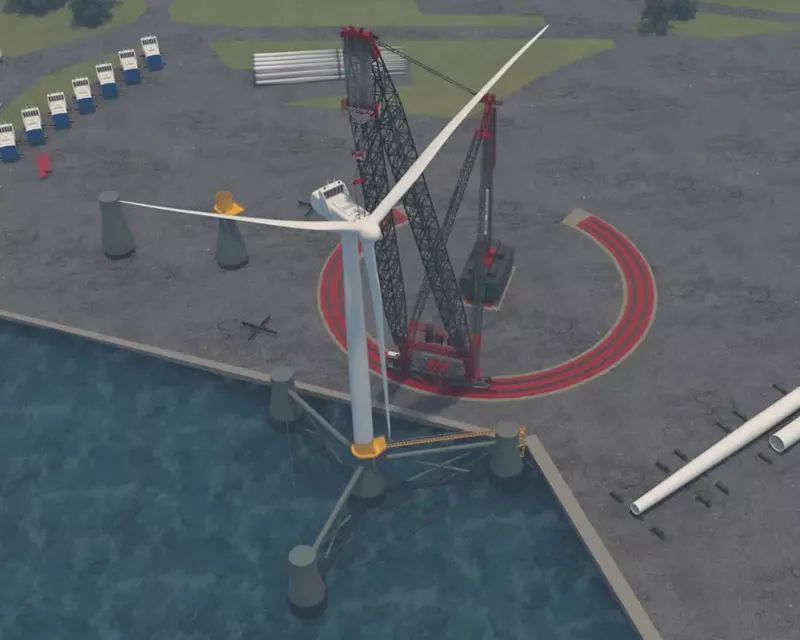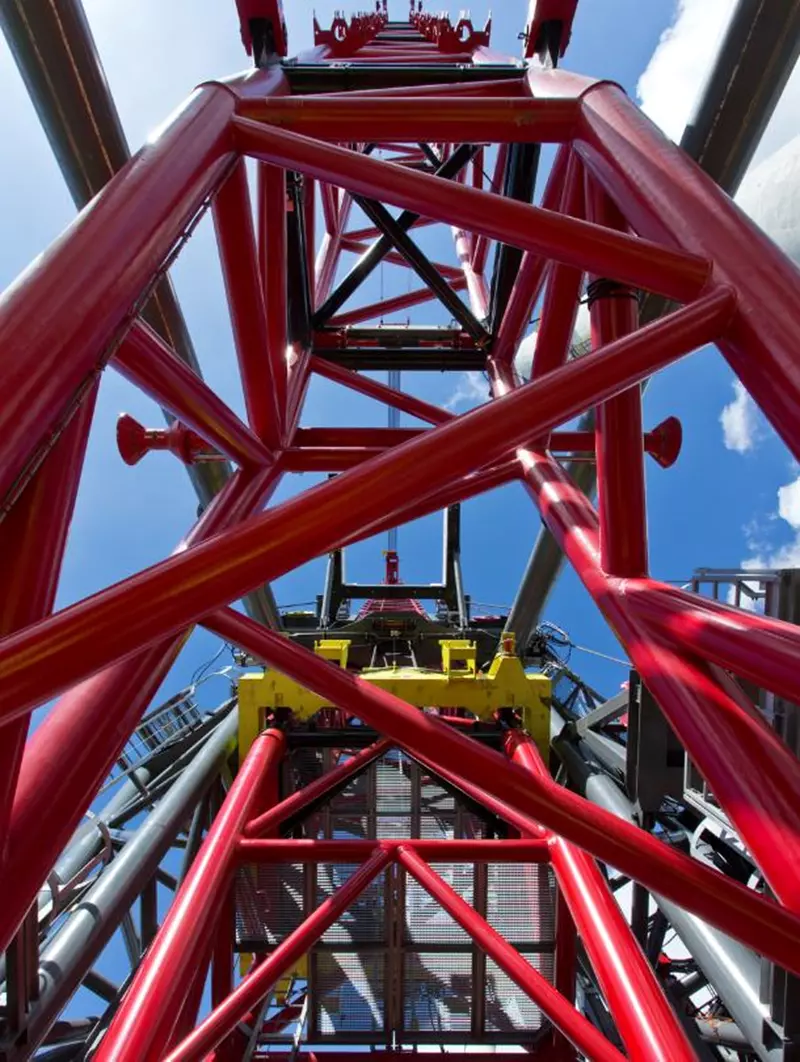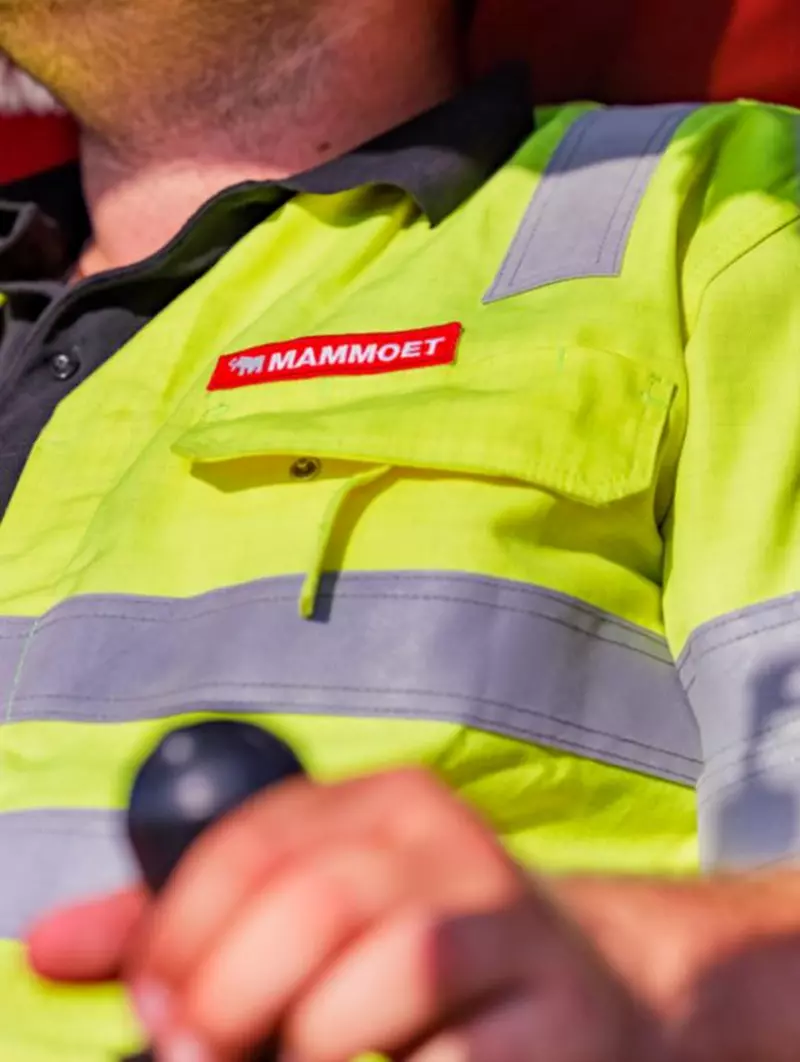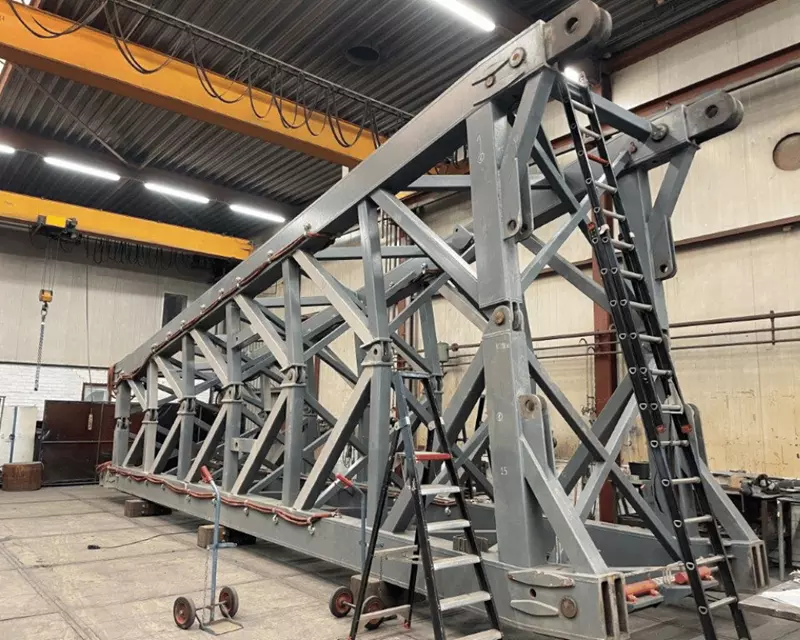
Sector:
Offshore Wind
Offshore
Oil and Gas
Expertise:
Crane lifting
Mammoet investing in an additional 6,000t capacity ring crane to serve growing energy markets.
The first parts of the new 6,000t ring crane will soon be delivered to Mammoet’s engineering nerve center in The Netherlands. In the months ahead, fabrication and production will continue as it is being readied for its very first project, with delivery scheduled in 2024. It becomes the world’s highest capacity land-based crane, and can be fully operated using electric power, allowing clients to execute projects in a sustainable way.
The introduction of this 6,000t ring crane sets a new standard in worldwide heavy lifting capacity and allows customers to construct heavier and larger components than ever before. With its unrivaled outreach, hook height and lifting capacity, it offers a carbon-free lifting solution that others simply cannot match.
The new ring crane, named SK6000, shares the same engineering DNA as its predecessor, the SK350. By employing similar design principles and lifting techniques, it provides customers with continuity and peace of mind. Much of the crane’s technology has been working successfully – and safely – on project sites around the globe for many years.
Like earlier models, the SK6000 is containerized, enabling swift mobilization and on-site assembly, providing ultra-heavy lift capacity wherever it is needed. It has been designed with next generation offshore wind farms in mind and will serve all global energy markets where additional lifting capacity is needed - both onshore and at sea.
As offshore wind components grow in scale and in weight, more lift capacity is needed. The SK6000 delivers this capacity and unlocks a major design constraint. Our latest innovation will enable customers to integrate higher and bigger turbines, and launch heavier foundations, be they fixed or floating.
In the conventional energy sector, the SK6000 allows offshore and floating production projects to reduce integration time by building even larger topside modules. On land, it helps refineries to reduce downtime by removing and installing larger components with minimum disruption.


